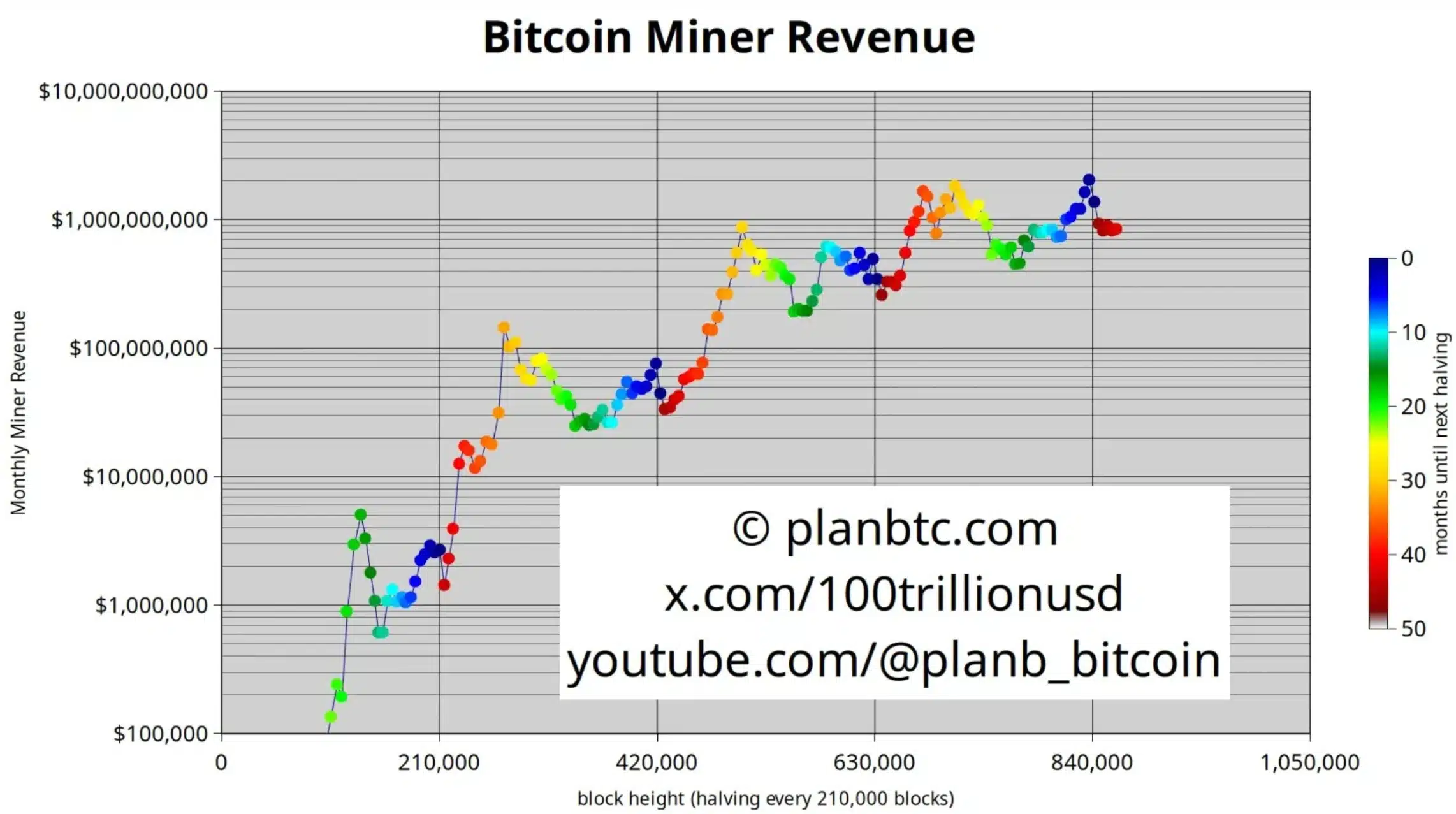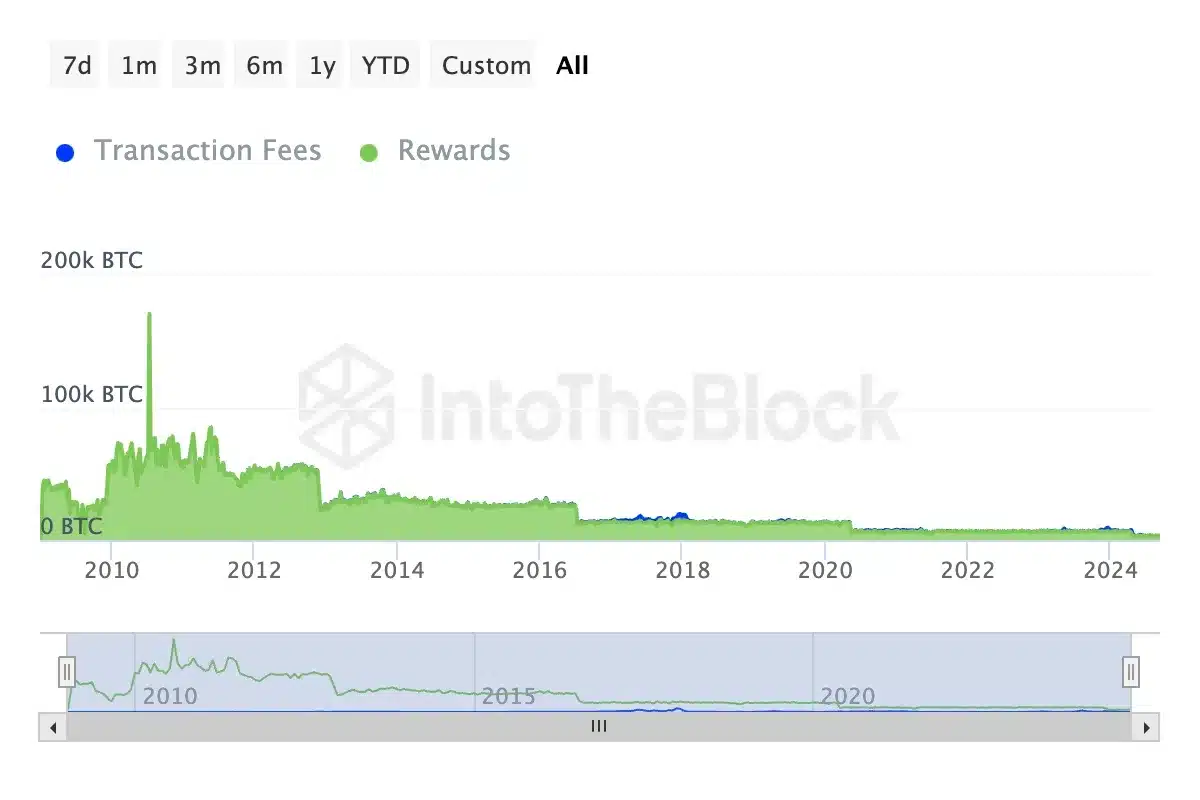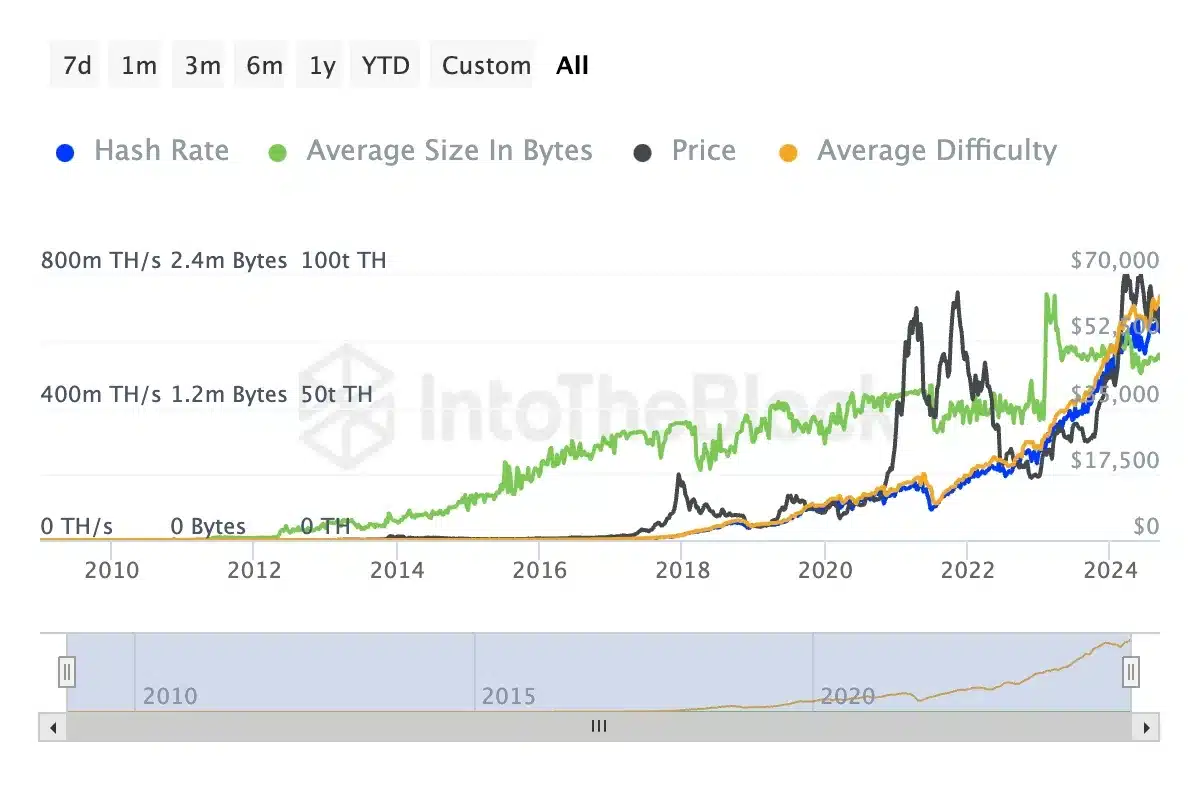Bitcoin miners face tough times as halving cuts rewards by over 90%

- Bitcoin’s post-halving price struggles highlighted market volatility and challenges in surpassing $60,000.
- Mining profitability has dropped significantly, despite increased hashrate and equipment efficiency improvements.
The anticipated impact of Bitcoin’s [BTC] fourth halving, expected to drive its price to new heights, initially seemed to materialize as BTC surged past $70,000 in March, marking an all-time high.
However, recent developments reveal a different story.
As of the latest CoinMarketCap update, BTC was struggling to maintain its momentum, trading at $58,629, and has dropped by 2.41% in the past 24 hours.
Bitcoin miners struggle post-halving
Following the recent Bitcoin halving, miners have encountered their own challenges. PlanB, the creator of the BTC stock-to-flow (S2F) model, highlighted these issues on X, and said,
“Miners are still struggling with the aftermath of the halving. We need 2x current BTC price to kick-start the bull pump.”
Compounding these challenges, investment bank Jefferies highlighted in a CNBC report that cryptocurrency mining profitability took a significant hit in August.
According to Jefferies, the average daily revenue per exahash—essentially, the income earned per miner—declined by 11.8% compared to the previous month.
This drop underscores the growing financial pressures faced by miners amidst fluctuating market conditions and rising operational costs.
According to an AMBCrypto analysis of IntoTheBlock data, the rewards for BTC miners have drastically decreased.
In the 2020 halving, miners were awarded 7,010 BTC, valued at approximately $75.99 million.
However, in the current 2024 halving, this reward has plummeted to just 471.88 BTC, equivalent to around $28.1 million.
This stark reduction underscores the financial strain miners are facing amid evolving market conditions.
Hashrate sees a rise
However, BitcoinMiningStockGuy added,
“And Hashrate is still rising. Bullish.”
This trend is further validated by AMBCrypto’s analysis of IntoTheBlock data, which revealed a dramatic increase in BTC’s hashrate.
In 2020, the hashrate was 140.93 million terahashes per second (TH/s), while it has surged to 695.84 million TH/s in 2024.
This significant rise highlights the intensified competition and increased computational power required in the mining sector.
What’s the solution?
In response to the declining profitability, North American publicly traded mining firms are investing heavily in equipment upgrades to enhance operational efficiency.
These advancements allow newer machines to achieve double the hashing power of their predecessors while consuming the same amount of energy.
Marathon CEO Fred Thiel explained to CNBC that this upgrade cycle is crucial, as it helps offset the deteriorating economic conditions in the mining sector.
“No need to add sites or power, just upgrade systems.”
However, not all miners are facing hardship equally.
For instance, Core Scientific, which emerged from bankruptcy earlier this year, has successfully repurposed its extensive infrastructure to support artificial intelligence and high-performance computing (HPC).
Thus, as the industry continues to evolve, it will be crucial to observe how these innovative approaches might offer solutions and set new benchmarks for overcoming profitability issues.









